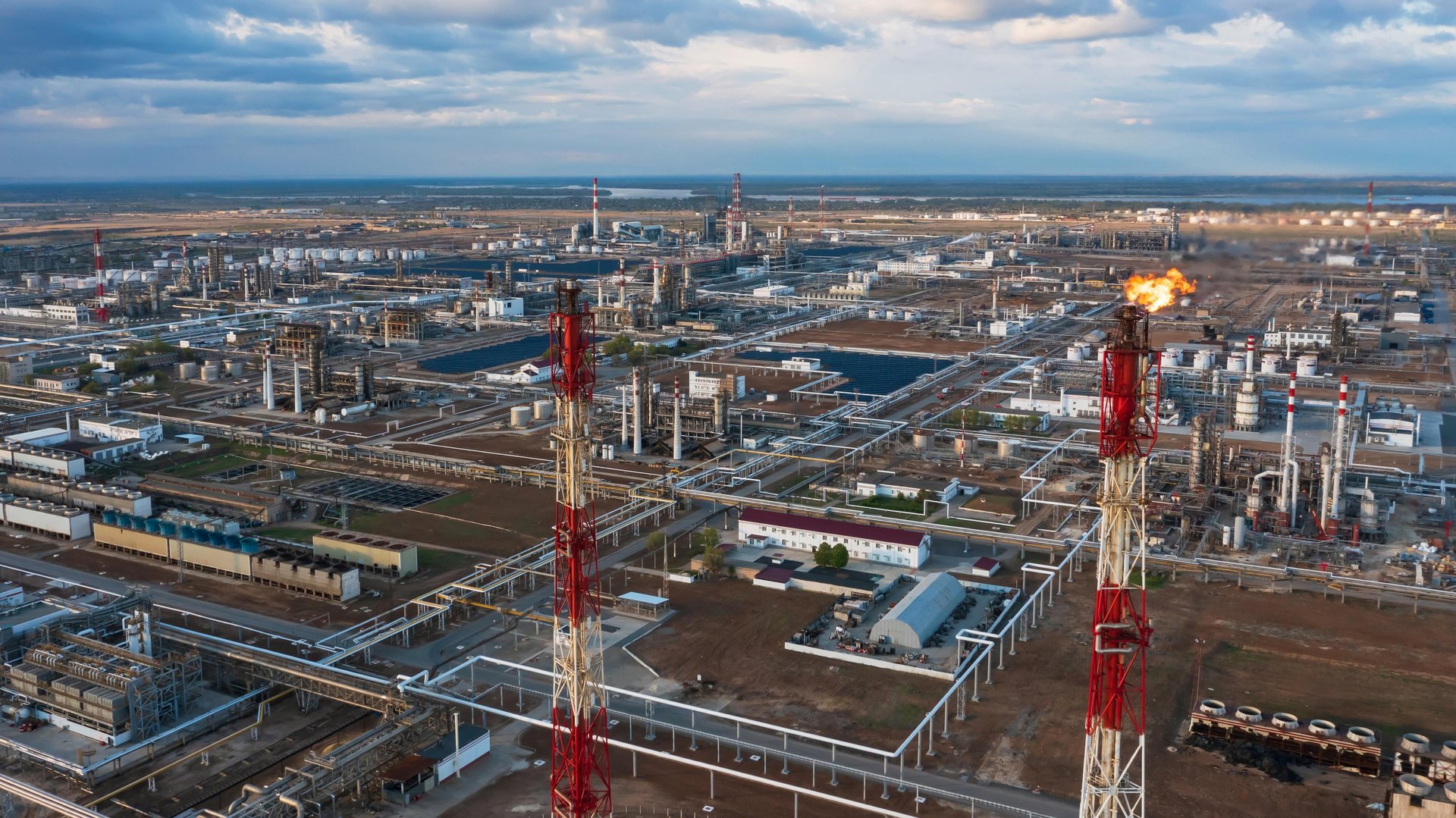Ukraine is bombing Russian oil refineries right when Russia really needs its oil money
Military spending is one of the only things helping Russia's economy grow

It’s been a bit of whiplash this week the world of Russian oil.
Suggested Reading
On Tuesday, Bloomberg reported that the country’s oil exports had crept up to 3.7 million barrels a day, their highest level this year. This comes even as its OPEC+ colleagues are trying to cut supply to help keep the price-dropping effects of surging U.S. crude production in check. Then, on Wednesday, the Associated Press reported that Ukrainian forces had attacked three oil refineries in two days, including the biggest facility operated by Rosneft, Russia’s biggest oil company.
Related Content
Global oil prices this week have remained little changed.
“We are systematically implementing a detailed, calculated strategy to reduce Russia’s economic potential,” a Ukrainian source told Reuters. Essentially: Ukraine is trying to take away Russian oil money that Russia needs to continue Ukraine. Russia has been spending a lot on its war effort, so much that military outlays are one of the only things helping its otherwise constrained economy to continue growing.
The attacks also come days before Russians are headed to the polls for a presidential election that is all but certain to keep Vladimir Putin in power. Economic stability has been one of his key sales pitches, albeit to a largely captive audience.
Russia and Ukraine have exchanged drone and missiles strikes targeting one another’s energy infrastructure for as long as the most recent escalation of their decade-long conflict has been going. Rosneft and Lukoil, the other Russian oil major with facilities targeted this week, both said that the damage was limited even if fires led to some equipment going offline.
But given the importance of oil money to Russia’s sensitive economic position, it’s highly likely those facilities remained open.
